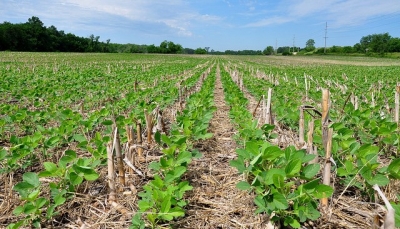
It is a method of farming by which crops are grown without disturbing the soil by tilling. If there is no tilling the crop residue on the soil prevents evaporation of rain water and more water infiltrates the soil. There is better retention of organic matter in the soil and nutrients are well recycled, thereby improving the fertility of the soil. It minimizes soil erosion and no ploughing means there is no airblown dust. It is more profitable as it does away with the labour, irrigation and machinery associated with tilling.
Tilling also damages ancient structures like burial mounds under the earth as archaeologists have found in the UK.
It was Edward Faulkner’s book Plowman’s Folly which started the idea of no-till farming in the 1940s. No till farming is widely practiced in the US. Indian farmers started adopting the practice in the 1960s. In the Indo-Gangetic plains, rice-wheat cultivation is done using this method. In parts of Andhra Pradesh rice-maize cultivation is done without tilling.
Picture Credit : Google

